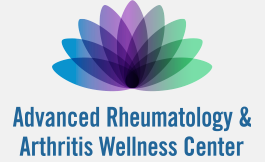Polymyalgia Rheumatica is an inflammatory disorder that causes muscle pain and stiffness, especially in the shoulders.
Symptoms of Polymyalgia Rheumatica usually begin quickly and are worse in the morning. Most people who develop Polymyalgia Rheumatica are typically older than 65 and rarely affects people under 50.
Polymyalgia Rheumatica is related to another inflammatory disorder called giant cell Arteritis, which can cause headaches, vision difficulties, jaw pain and scalp tenderness. It’s possible to have both of these conditions together.
Symptoms of Polymyalgia Rheumatica
The signs and symptoms of Polymyalgia Rheumatica usually occur on both sides of the body and may include:
- Aches or pain in your shoulders (often the first symptom)
- Aches or pain in your neck, upper arms, buttocks, hips or thighs
- Stiffness in affected areas, particularly in the morning or after being inactive for a long time
- Limited range of motion in affected areas
- Pain or stiffness in your wrists, elbows or knees (less common)
Diagnosis of Polymyalgia Rheumatica
Your answers to questions, a general physical exam and the results of tests can help your doctor determine the cause of your pain and stiffness. This diagnostic process also helps your doctor rule out other disorders that have similar symptoms to Polymyalgia Rheumatica.
Your doctor may reassess your diagnosis as your treatment progresses. Studies show that 2 to 30 percent of people initially given a diagnosis of Polymyalgia Rheumatica were later reclassified as having rheumatoid arthritis.
Below are some tests that our physicians would run to make a proper diagnosis:
- Exam
- Blood Tests
- Imaging Tests
- Monitoring for Giant Cell Arteritis
Treatment of Polymyalgia Rheumatica
Treatment usually involves medications to help ease your symptoms, which include:
- Corticosteroids
- Calcium and Vitamin D Supplements
- Pneumonia Vaccine
- Methotrexate (Trexall)
- Physical Therapy
Prevention of Polymyalgia Rheumatica
You’ll need to find the right balance between rest and activity. Too much exercise is likely to make your symptoms worse, but activity usually helps to ease morning stiffness. Physiotherapy can be helpful in reducing pain and maintaining mobility.
Weight-bearing exercise (any exercise that involves walking or running) is best for maintaining bone strength and guarding against osteoporosis, but walking is usually most suitable for people with PMR.
Need Help Affording Medications?
Patients who are having difficulty paying for their medications, and who have federally funded Medicare, Medicaid, TRICARE, or commercial insurance, may qualify for additional support from the following foundations below:
- Chronic Disease Fund | www.cdfund.org | 877-968-7233
- Patient Access Network Foundation | www.panfoundation.org | 866-316-7263
- The Healthwell Foundation | www.healthwellfoundation.org | 800-675-8416
- Patient Advocate Foundation | www.copays.org | 866-512-3861



